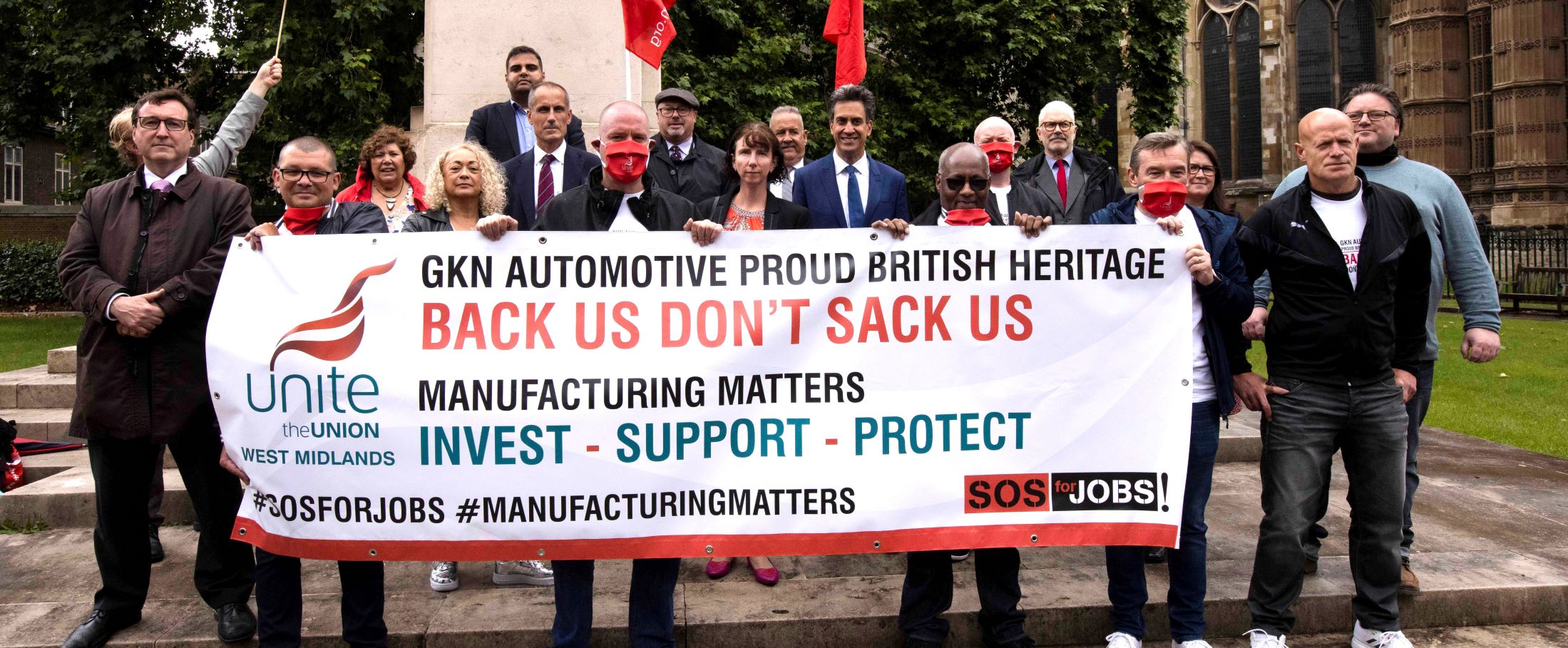Not just a steel crisis
The government is significantly under-estimating a potentially devastating fall out in the West Midlands from the steel crisis, according to the West Midlands Economic Forum.
It warns that the complex â€eco-system’ needed to sustain and expand steel and the manufacturers who rely on it needs an urgent co-ordinated government-led effort.
The West Midlands Economic Forum (WMEF) includes experts on the regional economy. These include policy makers’ representatives of financial institutions, manufacturers, economists, academics, and members of the voluntary sector.
Paul Forrest of WMEF is certain about the importance of steel-making in the UK. “Steel is a foundation industry, central to huge range of manufacturing in the West Midlands and elsewhere,” he told UNITElive.
“Its key importance is why, for example, the Germans nurture their steel industry so much.
High quality steel
“To make high quality precision components, you need high quality steel. UK steel is made with less than one per cent impurities, that is incredible, but that is what is needed.
“Our manufacturing base demands high spec components for aerospace, automotive and nuclear generation. You can’t deliver precision components with weaker quality steel.
“One of the great tragedies of the loss of Consett, for example, was the blow to our producing steel of high enough quality for nuclear energy components. But a whole range of manufacturing might suffer without a healthy UK steel industry.
“If our manufacturers can’t get sufficient quantities of high quality steel from the UK then they have to get it from further away. That pushes up costs, reduces the ability to respond quickly and eats away at any competitive advantage.”
The forum estimates that around 30,000 people in the West Midlands are directly employed in metals production, fabrication machining, manufacturing and vehicle manufacturing.  But with another 160,000 jobs linked to steel supply in some way, it is not just a “steel crisis” says Forrest.
“Our manufacturing base is still highly competitive and plays a major and under-estimated role in our economy. Policy makers must be clear steel is a key part of the complex eco-system that sustains and nourishes our manufacturing base.”
Manufacturing and steelmaking have been hit by the jump in the value of sterling against the euro and the Chinese yuan. The euro zone countries devalued their currency by printing more money –quantitative easing – giving them a competitive advantage against the UK.
The Chinese appear to be in a â€currency war’ devaluing their currency against a range of others to make their goods cheaper.
The Bank of England’s long-running warnings over two years that it might push up UK interests rates has also artificially pushed up the value of sterling making imports cheaper and what we sell abroad more expensive.
Forrest says manufacturers and steelmakers need greater currency predictability.
“It might take 18 months of an export drive to get your first sale. In that time the value of currency could have swung against you, putting you in trouble.
Policy
“A fixed exchange is not going to happen but we need a monetary and fiscal policy which produces a more predictable exchange rate. The strength of the pound has had a real impact on UK steelmakers and manufacturers.
“Massive Chinese over-capacity in steel is not going to last forever. When China’s economy makes the transition from investment focussed to consumer focussed – as it will – their steel exports will diminish rapidly.
“Steelmakers need energy prices to be addressed. In Germany intensive industrial users of energy pay half the price of UK steelmakers, the reality is that needs to be addressed quickly.”
The Forum has a range of proposals to assist the steel industry from accessing EU funds for training and skills, to offering help to exporters hit by the strength of the pound.
Strategy for steel
It adds up to having a strategy for steel, but also by implication, for manufacturing. That isn’t lost on Unite assistant general secretary Tony Burke.
“It is very obvious there needs to be a co-ordinated government strategy. And it is obvious we are addressing a steel crisis which could have a domino effect across manufacturing.
“The government needs to wake up to the risks which are emerging. It must move on from listing what it can’t or doesn’t want to do, to focussing on what it must do to protect and rebuild our steel industry.”
Gerard Coyne, Unite West Midlands regional secretary said the Forum highlighted the importance of steel to West Midlands manufacturing as a whole.
“No one is saying that 160,000 jobs are under threat, but they can certainly be undermined by the government being too narrow-minded or unwilling to act.
“What happened at Caparo came out of the blue and was devastating news. But it highlights that there may not be proper awareness of the number of jobs potentially ‘at risk’.”
 Like
Like Follow
Follow
